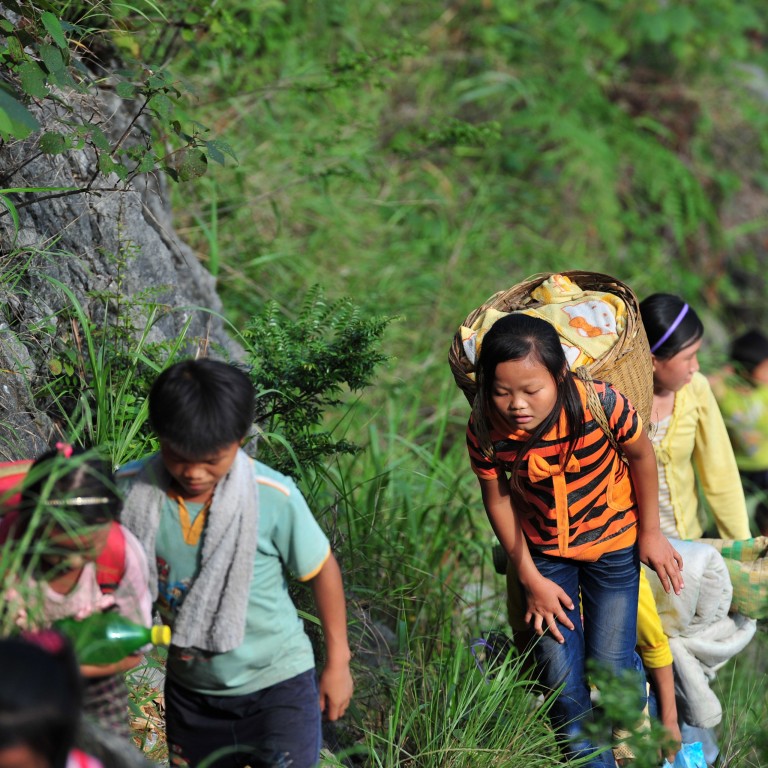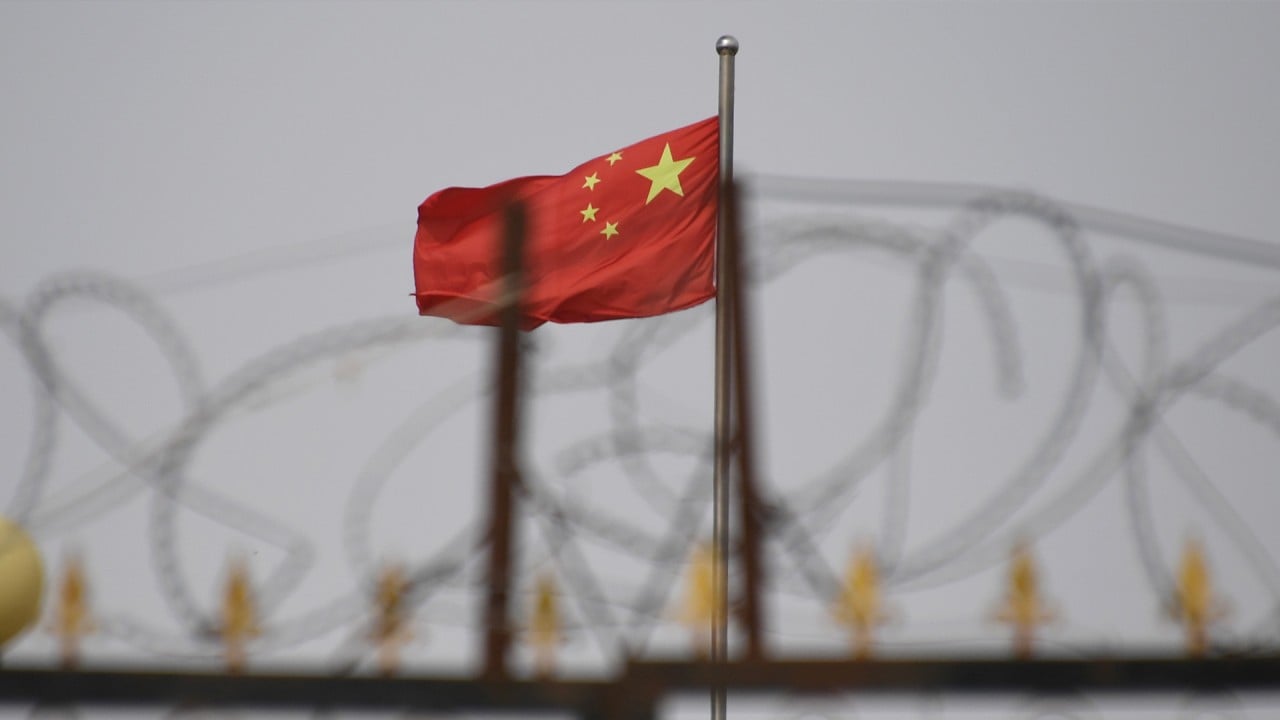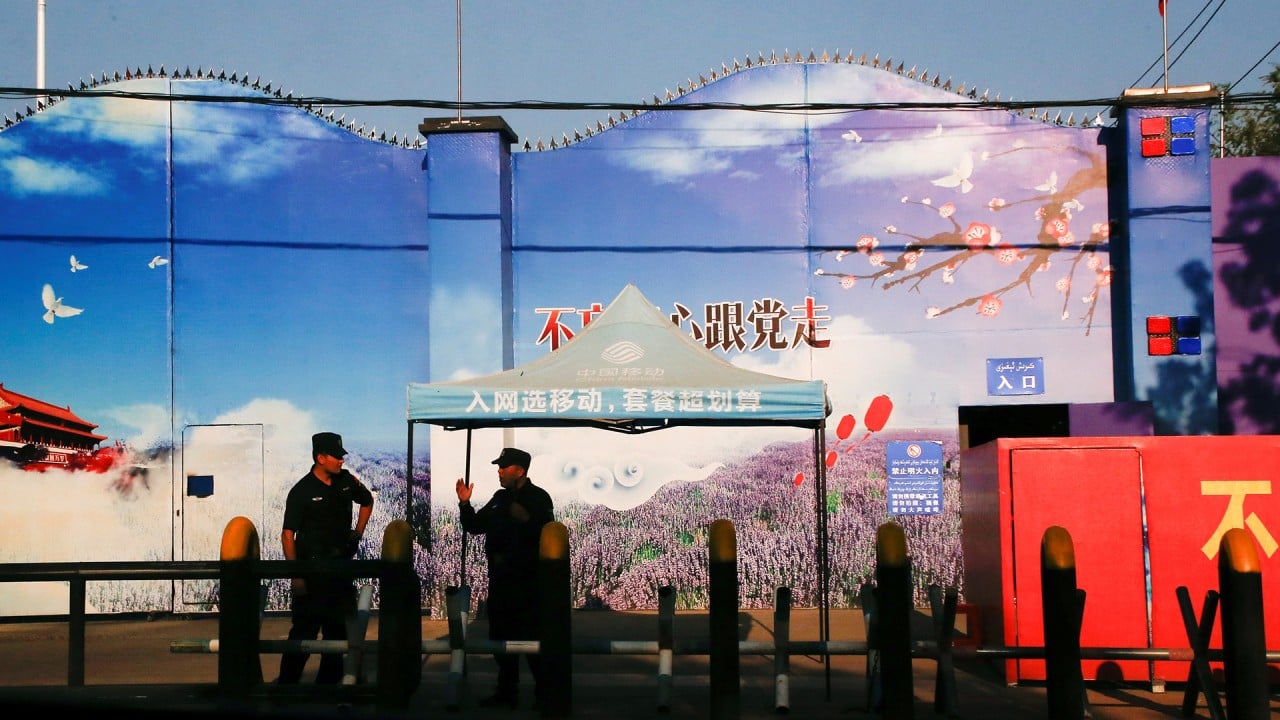
China says it lifted millions from ethnic minority groups out of poverty in the past five years
- White paper hailing Beijing’s successes said 15.6 million people in the eight poorest provinces and regions had benefited from the anti-poverty drive
- Report does not directly address growing outcry over its actions in Xinjiang, but stresses benefits of economic development for ethnic minority groups
Over 15.6 million people in the poorest parts of China, including the areas with the highest concentrations of ethnic minorities, have been lifted out of poverty in the past five years, according to a new government white paper.
The document does not directly address the accusations but said China has achieved remarkable success in helping rural residents from ethnic minority origins to escape poverty.
“[We have made] great strides in our decisive battle against poverty in ethnic minority areas,” the paper said. “From 2016 to 2020, the population living in poverty in Inner Mongolia, Guangxi, Tibet, Ningxia and Xinjiang autonomous regions, and Guizhou, Yunnan and Qinghai provinces fell by 15.6 million.”
Xinjiang forced labour concerns threaten to derail China’s investment deal with EU
Earlier this year, the country officially declared that it had eradicated extreme poverty and said it was entering a new phase of economic and social development that would see it become a “modern socialist country” by 2035.
Xia Gengsheng, the deputy head of the national administration for rural revitalisation, attributed the success to heavy investment and policy support from the central government.
“For instance, the specialised funds provided by the central government for these eight provinces and autonomous regions during this critical period reached almost 300 billion yuan [US$45.7 billion] or about 45 per cent of the national total,” Xia said.
“[Beijing] has also granted policy support in areas such as finance, land use and human resources, providing powerful backing in winning the battle against poverty in these ethnic minority areas.”
Xia said the per capita net income of low-income residents in the eight provinces highlighted had passed 10,000 yuan (US$1,520) by the end of last year, over and above the international benchmark for abject poverty.
“It should be said that this is no easy achievement,” Xia said.
The document also said Beijing had also made great efforts to help ethnic minority groups move to jobs outside their home provinces and dispatched 3 million cadres to support anti-poverty work in remote impoverished areas.
The paper did not break down the figures for each province, but said the number of nationwide transfers had more than doubled from 12.3 million in 2015 to 32.4 million in 2020.
According to the work report released by the Xinjiang government earlier this year, more than 14.3 million jobs were arranged for rural labourers in the region through organised government programmes in the past five years, and about 2.7 million are expected to be made available this year.
China poverty: Beijing says it’s been eradicated, but what exactly has been achieved?
China officially recognises 56 different ethnic groups, with the billion-plus Han Chinese citizens representing the vast majority at 91.5 per cent of the population.
The other 55 ethnic minority groups include people such as Zhuang (16.9 million), Hui (10.5 million), Manchus (10.3 million) and Uygurs (10 million).
Xing Chengju, an associate professor at Northwest A&F University, said Beijing attached great importance to poverty alleviation as a way of maintaining unity and stability in ethnic minority areas and border regions.
“[Success] is vital in defeating the lure of extreme religious ideologies and foreign separatist forces among the poor as it means that the ethnic minority people can share the fruit of [China’s] economic and social development,” Xing said.
Wu Qiang, a political analyst in Beijing, said the focus on lifting people’s living standards was China’s shield against Western criticism of its policies in Xinjiang.
“Beijing is trying to use this White Paper to divert the attention of the international community on Xinjiang and other human rights issues, and respond to criticism with the ‘right to development’,” Wu said.
Wu said the paper indirectly suggested that the cause of the problems in Xinjiang was not terrorism but decades of poverty.
“What Beijing does not want to admit is that the Xinjiang issue was caused by long-term impoverishment, not terrorism,” Wu said. “In other words, so-called extremism is caused by poverty, including insufficient investment in infrastructure building, education and so on in the region.”
Xia said partnership programmes between well-to-do provinces and ethnic minority groups would continue, something Wu believed would mean that Beijing would seek help from other provinces to promote integration between different ethnic groups in places such as Tibet and Xinjiang.



